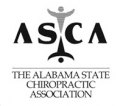Alabama Chiropractors in Favor of Drugs

The Alabama State Chiropractic Association (ASCA) conducted a survey of member practitioners in 2010 regarding the scope of practice in Alabama. Overall, results indicated that a majority of surveyed chiropractors are in favor of the inclusion of injectable vitamins and nutrients and prescriptive rights in the scope of practice.
Within the group of 255 respondents, 63 percent percent agreed or strongly agreed that chiropractic is a drugless alternative to allopathic medical care, and the same proportion of respondents felt that chiropractic is the detection and correction of subluxations. Seventy-six percent agreed that subluxation is an important cause of disease and correction can restore health.
However, 41 percent responded that the chiropractic profession should abandon the term subluxation and focus on a broader scope of practice in general! A majority were also in favor of chiropractors utilizing injectable vitamins and nutrients (58 percent), as well as prescriptions of certain drugs (60 percent).
Survey respondents also believed that expanding the scope of practice in Alabama would both increase membership to the ASCA, as well as the number of patients seeking chiropractic care. Seventy-eight percent of the ASCA membership responded to this survey, which indicates that the outcome is a good representation of the climate of the chiropractric profession statewide. The Foundation hopes that practitioners in the state of Alabama consider the hazardous implications of such an expansion of scope for the chiropractic profession.
Blogs
- The Chiropractic Cartel: A Look Back at Bias in Accreditation and its Imact on Today's Profession
- Inside Montana's Chiropractic Monopoly: ACA & MCA's Brazen Board Takeover
- Concerns Grow About Control of the NY State Chiropractic Board by the ACA - Use of X-ray in NY Under Threat
- Reproductive Health Information and Chiropractic Care: Navigating New Privacy Regulations
- Navigating Substance Use Disorder (SUD) Consent: What Chiropractors Need to Know














